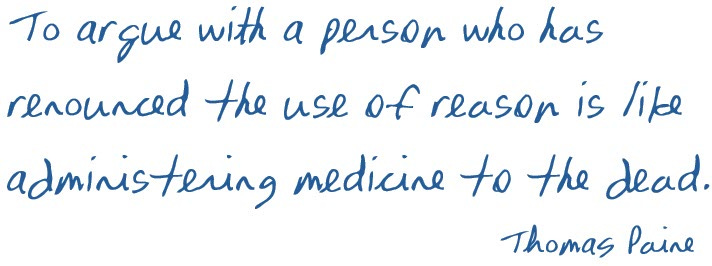Navigating Unproductive Discourse
The wisdom of this quote teaches us to be discerning about where we invest our energy in discussions and debates.
This quote comes from Thomas Paine's The Crisis No. V written in 1778 during the American Revolution. Paine, frustrated with those who continued to support King George III despite clear evidence of tyranny, penned these words to express his exasperation with individuals who refused to engage in logical debate. The context was particularly relevant as Paine attempted to convince colonists to support independence through rational arguments in his series The American Crisis, but encountered many who blindly maintained loyalty to the crown regardless of facts or reason.
This quote reminds us to be discerning about where we invest our energy in discussions and debates. Some practical examples include: 1) When engaged in workplace disagreements, first assess if the other party is open to rational discussion before investing significant time, 2) In personal relationships, recognize when someone is emotionally rather than logically invested in their position and adjust your approach accordingly, 3) On social media, learn to identify when discussions are productive versus when they're merely circular arguments with those who've abandoned reason.
Biblical Reference: Proverbs 18:2 - "Fools find no pleasure in understanding but delight in airing their own opinions." This verse perfectly aligns with Paine's sentiment, highlighting the futility of trying to reason with those who aren't interested in understanding truth. The scripture teaches us that wisdom includes knowing when to engage and when to walk away from fruitless debates.
Evaluate your current relationships and discussions to ensure you're investing your energy wisely. Consider these questions:
· Are there ongoing arguments in your life where the other party has shown no interest in rational discussion?
· How much emotional and mental energy are you spending on these unproductive debates?
· What alternative approaches could you take with these individuals?
· In what ways could you redirect your energy toward more receptive audiences?
· How can you maintain relationships while avoiding fruitless arguments?
Take time this week to identify one situation where you need to adjust your approach based on this wisdom. Remember, your time and energy are valuable resources - invest them where they can make a real difference.




